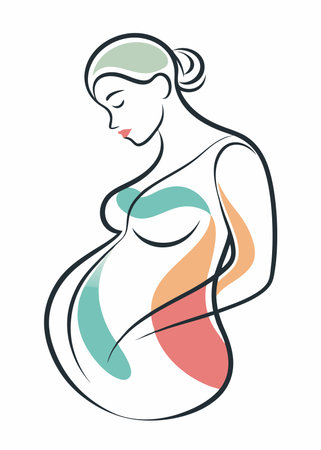Understanding Teething: Signs, Symptoms, and Timeline
Teething is a significant milestone in every infant’s early development, and understanding the process can help parents across the UK better support their little ones during this sometimes challenging phase. Teething refers to the period when an infant’s first teeth (known as milk teeth or baby teeth) begin to emerge through the gums. This natural process usually starts around six months of age, though there is a wide range of normal variation.
Typical Age Ranges for Tooth Eruption in British Infants
While each child is unique, most British infants follow a fairly predictable timeline for tooth eruption. The table below outlines the average ages at which different types of teeth appear:
| Type of Tooth | Average Age of Eruption (Months) |
|---|---|
| Lower central incisors | 6–10 |
| Upper central incisors | 8–12 |
| Upper lateral incisors | 9–13 |
| Lower lateral incisors | 10–16 |
| First molars | 13–19 |
| Canines (cuspids) | 16–22 |
| Second molars | 23–33 |
Common Signs and Symptoms of Teething
The teething experience can differ from one infant to another, but several signs are frequently observed by parents and health visitors in the UK:
- Irritability or fussiness
- Increased drooling and dribbling
- Crying more than usual, especially at night
- Chelwing or biting on fingers, toys, or other objects
- Sore or swollen gums that may appear redder than usual
- Mild temperature increase (not typically above 38°C)
What Is Not Typical?
It’s important for parents to recognise that while mild discomfort and irritability are common, high fever, severe diarrhoea, or persistent rash are not typical symptoms of teething. If your baby experiences these symptoms, it is advised to consult your local GP or health visitor for further assessment.
2. Paediatrician-Approved Home Remedies
Teething can be a challenging time for both babies and their parents. British paediatricians recommend a range of safe and effective home-based remedies that can help soothe your little one’s discomfort. The following strategies are endorsed by UK health professionals, ensuring they are both gentle and suitable for use at home.
Cold Comfort: Chilled Items for Teething Relief
Applying something cold to your baby’s gums is widely recognised as one of the safest ways to alleviate teething pain. Here are some popular options:
| Remedy | Description | Paediatrician Advice |
|---|---|---|
| Chilled Teething Rings | Place a teething ring in the fridge (not freezer) and allow your baby to chew on it under supervision. | Ensure the teether is BPA-free and avoid freezing to prevent gum damage. |
| Cold Washcloth | Dampen a clean muslin or flannel, chill it in the fridge, and let your baby gnaw on it. | Always supervise and ensure the cloth is not too cold or frozen solid. |
| Cooled Fruit in Mesh Feeder (for older infants) | For babies over six months, place pieces of chilled banana or cucumber in a mesh feeder. | Avoid hard foods and always supervise to reduce choking risk. |
Gentle Gum Massage
British paediatricians often suggest massaging your baby’s gums with a clean finger. This gentle pressure can offer immediate relief. Ensure your hands are thoroughly washed before doing so, and keep nails short to avoid accidental scratches.
Pain Relief Gels: Use With Caution
The NHS advises caution when considering teething gels. If you choose to use them, select products specifically formulated for infants and approved by UK regulatory bodies. Always follow the product instructions closely and consult your health visitor or GP if unsure.
Key Points for Safe Home Remedies:
- Avoid giving aspirin, honey, or any herbal remedies not recommended by your healthcare provider.
- Never tie teething rings around your babys neck due to strangulation risk.
- Maintain regular oral hygiene even before teeth emerge by gently wiping gums with a damp cloth.
By choosing these paediatrician-approved home remedies, you can help ease your baby’s teething discomfort while following guidelines trusted by British families across the UK.

3. Over-the-Counter Solutions: What’s Available in the UK
When your baby is experiencing teething discomfort, it’s natural to seek quick and effective relief. In the UK, several over-the-counter (OTC) remedies are available to help soothe teething pain. British paediatricians and the NHS recommend choosing these products with care, always considering safety, age-appropriateness, and evidence-based benefits.
A Guide to Teething Gels, Pain Relievers, and Other Products
The most common OTC solutions include teething gels, pain relievers like paracetamol and ibuprofen, and a range of soothing products such as teething rings. Here’s an overview of what’s available and NHS guidelines for safe use:
| Product Type | Common Brands (UK) | Recommended Age | Key Considerations |
|---|---|---|---|
| Teething Gels | Anbesol Teething Gel, Bonjela Teething Gel* | 4 months + (Check specific product) | *NHS recommends using sugar-free gels designed specifically for babies; avoid gels containing lidocaine or salicylate unless prescribed by a doctor. |
| Pain Relievers | Calpol (Paracetamol), Nurofen for Children (Ibuprofen) | Paracetamol: 2 months + Ibuprofen: 3 months + and over 5kg |
Use correct dosage based on baby’s weight/age; consult pharmacist or GP before first use. |
| Teething Rings | Nuby, Tommee Tippee, MAM | From birth (check packaging) | Can be cooled in the fridge; never freeze or add sweeteners. |
Safety Considerations and NHS-Recommended Usage
- Avoid numbing agents: The NHS does not recommend products containing benzocaine or lidocaine due to potential health risks in infants.
- No aspirin or adult medications: Never give aspirin or non-prescribed adult painkillers to children under 16 years old.
- Cautious use of gels: Only use teething gels formulated for infants and follow dosage instructions carefully.
- Consult professionals: If unsure about any product, speak to your health visitor, pharmacist, or GP before use.
- Monitor for allergies: Always watch for allergic reactions when introducing new products.
NHS Guidance at a Glance
The NHS advises prioritising non-medicinal approaches whenever possible—such as giving your baby a chilled teething ring or gently rubbing their gums with a clean finger. OTC medicines should be used sparingly and only when other methods have not provided sufficient relief. Remember: each child is different, so what works for one may not suit another. If you have ongoing concerns about your babys discomfort or suspect something more serious than teething, seek advice from your healthcare provider.
4. Natural and Cultural Approaches to Teething Relief
Teething is a natural developmental milestone, and many parents in the UK blend traditional practices with modern, evidence-based care to soothe their little ones. Understanding both natural remedies and cherished British traditions can help families establish supportive routines that ease discomfort while ensuring infant safety.
Exploring Safe Natural Remedies
Natural remedies are often preferred by parents seeking gentle options for teething relief. However, it is essential to choose methods that are recommended by British paediatricians and avoid remedies containing potentially harmful substances such as alcohol or sugar. The table below outlines common natural approaches and their paediatrician-approved usage:
| Remedy | Description | Paediatrician Recommendation |
|---|---|---|
| Chilled Teething Rings | Rings made of BPA-free plastic, cooled in the fridge (not freezer) to soothe gums. | Safe if not frozen; always supervise use. |
| Cold Washcloth | A clean, damp cloth chilled in the fridge, then given to the baby to chew on. | Safe; ensure cloth is clean and changed frequently. |
| Breastfeeding or Bottle Feeding | The act of sucking can be soothing for some infants experiencing teething discomfort. | Encouraged if baby finds comfort; monitor for signs of biting. |
| Fresh Fruit in Mesh Feeders | For older babies (>6 months), cold fruit like banana or cucumber in mesh feeders can help relieve soreness. | Only suitable for weaned babies; supervise closely to prevent choking. |
British Traditions and Cultural Practices
The UK has its own set of time-honoured customs when it comes to caring for teething infants. While some historical remedies—such as using amber necklaces or herbal concoctions—are now discouraged due to safety concerns, other practices have stood the test of time:
- Bonjela Teething Gel: Widely used under pharmacist guidance, Bonjela is approved for babies over 6 months but should be used sparingly and according to NHS recommendations.
- Cuddling and Comfort: British families often prioritise calm environments, cuddles, and extra attention during teething episodes, emphasising emotional support alongside physical relief.
- Soothing Bedtime Routines: Establishing a consistent bedtime routine—such as a warm bath followed by gentle rocking or reading—can help distract from gum discomfort and promote restful sleep.
Cultural Note: Avoiding Outdated Remedies
The NHS strongly advises against giving infants any homeopathic teething powders or gels containing belladonna, honey (for babies under one year), or old-fashioned alcohol rubs. Always consult your health visitor or GP before introducing new remedies.
Tying It All Together: Supportive Routines That Complement Evidence-Based Care
A holistic approach—combining safe natural remedies, trusted British products, and nurturing family routines—can provide comprehensive comfort during teething. By aligning cultural traditions with up-to-date medical advice, parents ensure their babies receive both effective pain relief and loving support throughout this challenging stage.
5. When to Consult Your GP: Warning Signs and Next Steps
While most teething symptoms can be managed at home with safe, paediatrician-approved remedies, there are occasions when it’s essential to seek professional advice. Understanding the difference between normal teething discomfort and signs of more serious health concerns will help you make informed decisions for your baby’s wellbeing.
Signs That Professional Help Is Needed
| Warning Sign | Description | Why It Matters |
|---|---|---|
| High Fever (over 38°C) | A temperature above 38°C is unlikely to be caused by teething alone. | Could indicate infection or another underlying issue. |
| Persistent Diarrhoea or Vomiting | Frequent, watery stools or repeated vomiting not settling after 24 hours. | Risk of dehydration; may signal an unrelated illness. |
| Refusal to Feed or Drink | Bottle or breast refusal, or significant drop in appetite. | May lead to dehydration and poor nutrition. |
| Unusual Drowsiness or Irritability | Lethargy, excessive crying, or difficulty rousing your baby. | Can be a sign of systemic illness requiring urgent care. |
| Rash Not Fading Under Glass (Non-Blanching) | A rash that doesn’t fade when you press a glass tumbler against it. | This can indicate meningitis – seek emergency help immediately. |
How to Approach Your NHS GP or Health Visitor
If any of the warning signs above are present, contact your NHS GP surgery as soon as possible. For non-urgent questions about teething, your health visitor can offer reassurance and practical advice during scheduled visits or over the phone. If you are concerned out-of-hours, NHS 111 provides round-the-clock guidance and will advise if a face-to-face assessment is needed.
What to Expect During Your Consultation
- Assessment: The GP or health visitor will ask about your child’s symptoms, feeding patterns, nappy changes, and general behaviour. They may check your baby’s mouth, ears, and throat to rule out infection.
- Advice: You’ll receive tailored recommendations for managing discomfort and preventing complications such as dehydration.
- Treatment: If necessary, prescriptions for pain relief or treatment of infections will be provided. In rare cases, referral to a paediatric specialist may be arranged.
- Follow-Up: You may be asked to monitor certain symptoms at home and return if they worsen or persist beyond expected timeframes.
Your Baby’s Health: When in Doubt, Check It Out
The NHS prioritises the safety of infants and young children. If you are ever uncertain whether your baby’s symptoms are related to teething or something more serious, err on the side of caution and consult your GP. Early intervention ensures peace of mind and the best possible outcomes for your little one’s health.
6. Supporting Parents and Carers: Practical Tips for Managing Teething
Teething can be just as challenging for parents and carers as it is for babies. In the UK, support is available through various channels, and adopting practical strategies can make a significant difference in your wellbeing during this time. Below, we offer advice tailored to British families for self-care, sleep management, and accessing community resources.
Self-Care for Parents and Carers
Caring for a teething baby often means disrupted routines and increased stress. Prioritising your own wellbeing is essential for providing the best care to your child. Consider these self-care strategies:
| Self-Care Tip | UK Resources/Examples |
|---|---|
| Take short breaks when possible | Ask a partner or trusted friend to watch your baby while you enjoy a cuppa or take a walk |
| Practice mindfulness or relaxation techniques | NHS Mindfulness guides, Headspace app (often recommended by health visitors) |
| Connect with other parents | Join local NCT groups or Sure Start Childrens Centres |
Sleep Strategies During Teething
Lack of sleep can impact both you and your baby. Managing sleep disruptions requires patience and a few practical tactics:
- Maintain a consistent bedtime routine, such as bath, story, and cuddle time.
- If your baby wakes frequently, try offering comfort without picking them up immediately—gentle reassurance can sometimes help them resettle.
- If possible, share night-time duties with another adult in the household.
Sample Bedtime Routine (Adapted for UK Families)
| Time | Activity |
|---|---|
| 6:30pm | Warm bath with gentle lullabies (e.g., BBC CBeebies Bedtime Stories) |
| 6:50pm | Pajamas on; brush gums/teeth with soft baby toothbrush and fluoride toothpaste (NHS recommended) |
| 7:00pm | Quiet story time; dim lights; cuddles and soothing words |
Accessing Community Support in the UK
The UK offers a variety of resources for parents seeking advice or respite during the teething phase:
- NHS Health Visitors: Your local health visitor can provide support on teething management and parental wellbeing.
- Sure Start Children’s Centres: Offer playgroups, parenting classes, and drop-in sessions where you can meet other carers facing similar challenges.
- NCT (National Childbirth Trust): Runs parent meet-ups, online forums, and classes focused on early childhood development.
When to Seek Additional Help
If you feel overwhelmed or notice signs of persistent low mood, do not hesitate to speak with your GP or health visitor. Emotional support is a vital part of caring for yourself while looking after your little one.


